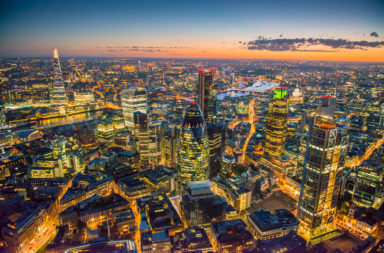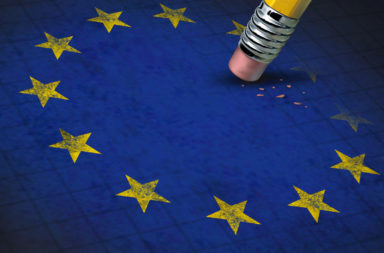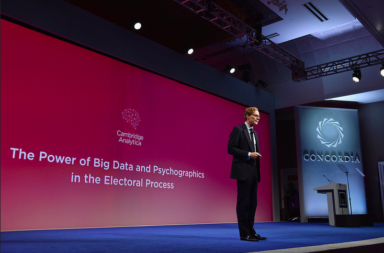Following a four-day sitting the United Kingdom Supreme Court has retired to consider a government appeal against the right of parliament to vote on triggering Article 50 and leaving the EU, with the court’s decision expected in January, but while we wait the increasingly bitter arguments will continue.
Likely to be leading the charge to Brexit, at least measured by volume, is self-appointed Brexit Commander-in-Chief Nigel Farage, challenging and lecturing anyone who dares to question the triumph and absolute moral certainty of the Brexit vote.
- High Court decision stating UK parliament must have role in triggering Brexit is appealed against by UK government
- Supreme Court will reach a decision in January next year
- Legal challenge has angered Brexit campaigners, despite their fight for British sovereignty – is this selective sovereignty syndrome?
- Challenge and debate about it has deepened post-Brexit rift and caused more anger in divided Britain
Those who claim to believe so strongly in British sovereignty, such as Farage, and fought to leave the EU because of their beliefs, now seem angry that some people in Britain felt the need to make a legal challenge about the right of the British parliament to have a say in Brexit. Sovereignty is all very well, as long as it fits your argument, it would seem.
Despite narrow Brexit victory UKIP has no electoral mandate
They don’t seem to understand that the mini-majority of 52% for Brexit is by no means the overwhelming majority which might, arguably, have given them the right to make demands and stamp their feet. It is in fact a reminder of how close the vote was and how carefully the withdrawal process needs to be handled. A wiser man than ex-prime minister David Cameron would have set a Brexit threshold of at least 65% in favour, to avoid the divided country which has been created. An even wiser man would not have promised the referendum.
Farage has never been elected to the British House of Commons, only to the European parliament which represents everything he claims to detest. His attempt to be elected as a British member of parliament failed miserably at the last election, so he resigned as leader of the UK Independence Party (UKIP), only to return a few months later.
Now temporarily in charge again after the most recent leader resigned, his role seems to be that of a trusty old boomerang, returning with comic regularity to “temporarily” lead a bunch of misfits whose MEPs (members of the European parliament) attend a parliament they do not believe in. In recent months two of these MEPs found time to have a disagreement which became physical and ended up with one of them in hospital. Steven Woolfe, who was hospitalised, later resigned from the party.
This is the real story of Nigel Farage and friends, and might come as a surprise to people outside of the UK, who had assumed that someone so frequently appearing in the media to argue the Brexit case must be a popular and well supported politician.
Bland political scene dominated by lightweight characters
With only a thin majority in favour of Brexit, only one UKIP member of parliament and no mandate from British voters to represent them in their own parliament, Farage’s man of the people routine and puffed up outrage is given much more media attention than it deserves. In common with Boris Johnson he manages to stand out in a political landscape of the lame and lifeless.
Good old bad old days
To people of a certain generation, who grew up in Britain, there is something of a slightly seedy and vaguely familiar salesman about Farage. Something of broken promises and exaggeration, the fish that got away, the “I’ll have a drink if you’re buying” fake camaraderie of men in pubs down on their luck but with stories to tell. He almost oozes the smell of cigarettes and dirty jokes, from the “good old days” before drinking and driving was banned and smoking was as natural as breathing to many.
Children were smacked, wives were at home and foreigners were wicked unless doing some menial work and not complaining. And although not exclusively, these type of people tend to be his natural constituency. They want to make the past the future.
Leavers lies still alive – media needs to nail them
As Farage tours the TV studios, ranting about how the will of the people must not be ignored or overruled, the far-fetched promises about money for the health service which would be saved by Brexit are hardly touched upon. The BBC in particular, constantly accused of having a left-wing and/or pro-EU bias, seems to go out of its way to avoid putting Brexiteers under pressure about the lies they told during the campaign.
Almost the day after the vote the 350 million pounds sterling a week figure, which would not go to Brussels but into the health service, was described by Farage as a “mistake”.
Brexiteers high on “freedom” yet to face reality
Down in Spain next summer, those sun-seeking Brexiteers suffering from a weaker pound and wondering if they will need a visa next time they holiday in Europe, will probably sit back and wonder when the benefits are coming. The so-called Independence Day could feel like a celebration too soon. Like teenagers leaving home, many Brexiteers will be surprised to find that a life full of freedom, however defined, is also full of responsibility and there are no free lunches.
To be fair, not all Brexiteers belong to this group of the naive, the nostalgic and the not too clever friends of Nigel. Some are intelligent people, who rightly see all that is wrong with the EU and genuinely feel that it cannot be put right from within. There is a lot to be said for the intelligent argument for a life outside but the harsh truth is that it is probably 20 years too late. And if it has to take place any such exit needs a lot more careful planning and national consensus than the unexpected and divisive mess which now exists.
Fear and opportunism paved the road to Brexit
While no one can change the referendum result and talk of another one is unrealistic, it is important for both sides to be honest about how it came about. What led us to this threshold was fear, not bravery and the will to strike out on our own. Fear of UKIP which scared David Cameron into promising a referendum, fear of foreigners, fear of federalism, and fear of fighting our corner.
There was no moral high ground or higher purpose, just an unfortunate set of circumstances and nobody able to articulate the counter-arguments. Into this fear and feebleness shambled such scheming opportunists and fake patriots as Nigel Farage, Boris Johnson and others who knew how to whip up fear and anger amongst the poorest left behinds of modern Britain. A bit like Trump’s promise to return manufacturing jobs to America, they made impossible promises to people desperate to believe someone would improve their lives when all else has failed. Bloated careerists and former metals traders masquerading as champions of the people would be funny, if the deception was not so ridiculous and sad.
Brexiteers could face a backlash from bitter Britain: real leadership is now needed to build national consensus
Surely “great” Britain, if you accept that it is, was or could be again, deserves a more mature debate about its future, from more mature individuals of intellectual ability and visionary thinking.
On one side is a narrow-minded and deceitful group of winners, which has promised this new Jerusalem wrapped up in the union flag, nostalgia and not much else and delivered uncertainty and a divided country. Some of them belong to the governing Conservative party, of which the other half is strongly opposed to their misty-eyed malignancy.
On the other is a shambolic Labour party not sure what it believes in and a pro-European Liberal party too small to make a difference. Before the much relabelled, reheated and ready to eat Brexit is even served, it has started to smell distinctly unappetising.
As we wait for the Supreme Court’s decision, Farage and friends should forget about being Donald Trump’s new best and only British friends, and waffling about waves, upsets, revolutions and the rest, and focus on one simple piece of maths: 52 is only slightly more than 48. Revolutions and radical change built on such slender foundations are likely to crumble sooner or later, one way or the other.
Instead of warning of the anger of the Brexiteers if they do not get their way, they should prepare for the backlash from all those opposed to Brexit and those who will change sides when reality bites. Theresa May, currently churning out silly slogans but no details, should consider this risk before she “hardbrexits” herself, her party and her country into a one way street.





